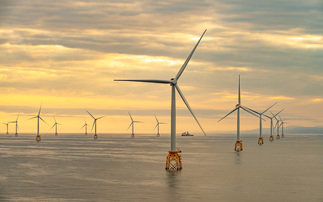
Analysis from Oil Change International warns COP hosts UAE, Azerbaijan, and Brazil are all planning to expand fossil fuel production
The self-styled troika of COP hosts are continuing to invest in expanding their fossil fuel production, in apparent defiance of the commitment made by countries at last year's COP28 Climate Summit in Dubai...
To continue reading this article...
Join BusinessGreen
In just a few clicks you can start your free BusinessGreen Lite membership for 12 months, providing you access to:
- Three complimentary articles per month covering the latest real-time news, analysis, and opinion from Europe’s leading source of information on the Green economy and business
- Receive important and breaking news stories via our daily news alert
- Our weekly newsletter with the best of the week’s green business news and analysis









